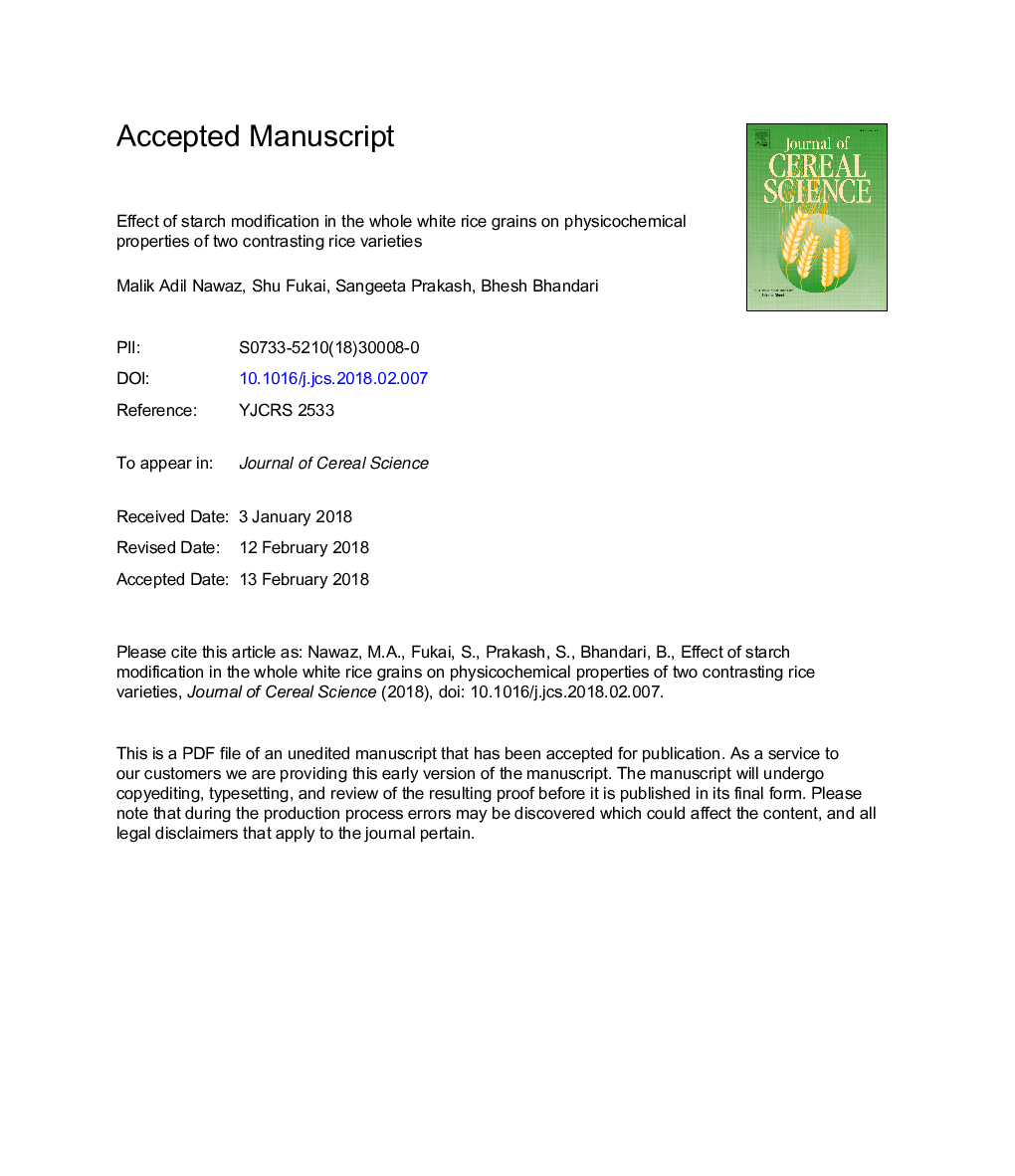| Article ID | Journal | Published Year | Pages | File Type |
|---|---|---|---|---|
| 8881401 | Journal of Cereal Science | 2018 | 22 Pages |
Abstract
The effect of acetylation of milled rice of selected rice varieties viz. TDK8 and DG on their physicochemical properties was investigated at different acetic anhydride concentrations (1-7â¯g per 100â¯g of milled rice samples in 225â¯mL of water). Results showed that the intact starch of milled grains of both selected verities could be acetylated (Acetyl % for TDK8â¯=â¯2.18 and for DGâ¯=â¯0.89) even with 1â¯g of acetic anhydride. X-ray diffraction patterns showed that acetylation resulted in reduced crystallinity. Acetylation resulted in reduced peak and final viscosities and gel strength, particularly in glutinous (TDK 8) and non-glutinous (DG) rice. Thermal study showed acetylation resulted in reduced thermal transition temperatures and enthalpy of both varieties. Although the increase in retrogradation thermal temperatures was observed, the amount of retrograded starch was decreased in both varieties. Furthermore, the texture of cooked acetylated grains was less hard and more adhesive. In vitro digestion showed significant decrease in GI possibly due to structural changes in the native starch during acetylation. These findings suggest a good potential of applying acetic anhydride pre-treatments in rice processing, especially glutinous varieties to control the hardness and maintain the stickiness properties of rice.
Related Topics
Life Sciences
Agricultural and Biological Sciences
Agronomy and Crop Science
Authors
Malik Adil Nawaz, Shu Fukai, Sangeeta Prakash, Bhesh Bhandari,
